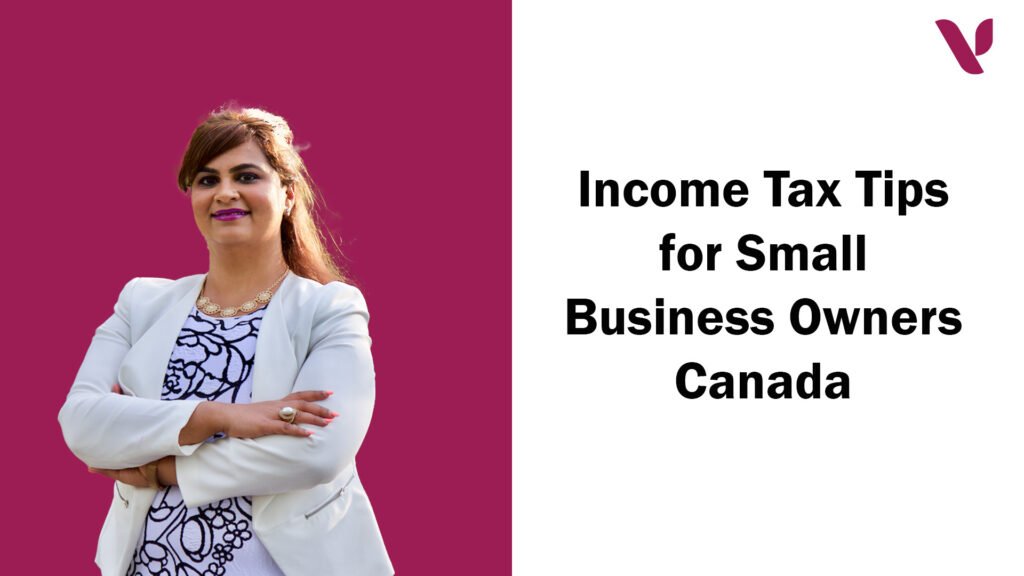Income Tax Tips for Small Business Owners Canada

Keep track of your income tax deadlines
When beginning the process, figure out which income tax return form is applicable to your small business operation.
If your business is considered a sole proprietorship or a partnership, your income tax will be declared on the T2125 form in addition to your personal income tax forms.
For incorporated Canadian small businesses, business income tax will be reported on the T2 return.
(I) Business use of Home Expenses:
For this category of deduction, you have to determine what portion of your home is dedicated to running your business. Formula used: Square ft of work space/Total Square ft of your home = % times total Home Expenses.
(II) Motor Vehicle Claims:
If your business is incorporated, there are two ways to apply these deductions: the CRA’s standard mileage rate OR your actual car expenses (including insurance, gas and repairs). Figure out which one makes the most financial sense before filing so you can maximize your corporation’s savings.
Per CRA, travel between a regular workplace and home is NOT considered business related. You were normally required to work away from your principle place of business or in different places.
(III) Keep your receipts in an organized manner:
For efficiency and time saving purposes, there are apps (such as QuickBooks online , Hubdoc or Receipt bank and many others) that captures, stores and organizes all receipts in one place. You will be able to import receipts from photos as well forward email invoices from your inbox. These apps automatically extract line items from each receipt using artificial intelligence and syncs with most accounting software. This way, you will make sure to keep track of your receipts, obtain that proof for every expense deduction claimed on your corporation’s tax return. Make it a resolution to keep your financial records, from your business receipts to your employees’ payment records, organized and in check all year around.
(IV) Ensure to check on carryovers amount balances:
(V) Take advantage of penalty relief, if you are eligible:
Tax penalties incurred due to failing to file a tax return or to pay on time are eligible for penalty relief. Corporations who are considered for relief include those who tried to follow the legal requirements but were unable to meet them due to circumstances beyond their control. Not everyone qualifies, but its worth finding out whether you are eligible. And that’s money refunded for an honest mistake.
Tip: By carefully accounting for deductions throughout the year and investigating your options, you’ll find alternatives you didn’t know existed and help your corporation manage its cash flows appropriately.
Disclaimer:
This publication has been carefully prepared, but it has been written in general terms and should be seen as broad guidance only. The publication cannot be relied upon to cover specific situations and you should not act, or refrain from acting, upon the information contained therein without obtaining specific professional advice. Please contact your advisor or accountant to discuss these matters in the context of your particular circumstances. Vartika Satija, CPA, CA do not accept or assume any liability or duty of care for any loss arising from any action taken or not taken by anyone in reliance on the information in this publication or for any decision based on it.

